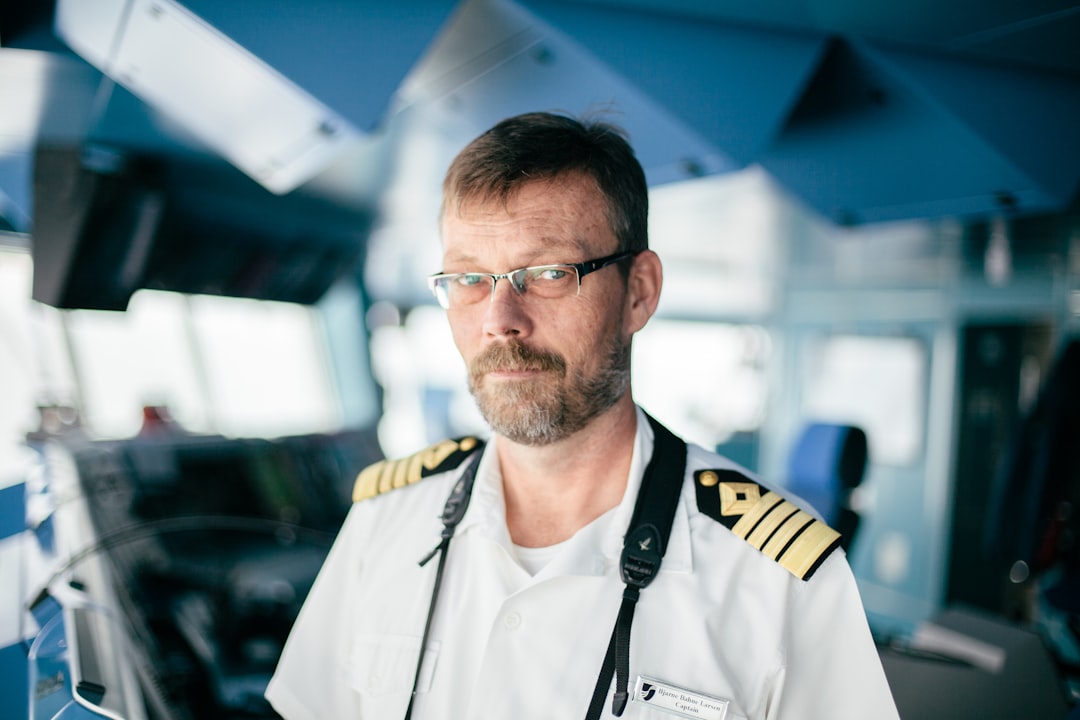Ship's Master Poutikanga Whakahaere Kaipuke
Ship's masters are in charge of a ship, its crew and any passengers or cargo it is carrying – on the water and in port. On tugs or pilot boats, ship's masters may guide or assist ships in and out of harbours or through difficult waterways.
Ship's masters may do some or all of the following:
- look after passengers, cargo and the vessel's safety
- plan and execute the vessel's route
- ensure all maritime laws, rules and regulations are followed and records are kept correctly
- ensure maintenance and repairs are carried out
- oversee any emergency operations
- supervise cargo handling.
Tug masters and pilots may also:
- guide and assist ships in and out of harbours and other difficult waterways
- assist with hazard identification, firefighting, pollution control and rescues.
Physical Requirements
Ship's masters need to:
- be reasonably fit and healthy
- have a good level of stamina
- have good eyesight (with or without corrective lenses)
- have normal colour vision.
Useful Experience
Useful experience for ship's masters includes:
- service in the Navy
- work as a deckhand or other seafarer roles.
Personal Qualities
Ship's masters need to be:
- mature and responsible
- organised and disciplined
- adaptable
- able to make good judgements
- able to work well in a team.
Skills
Ship's masters need to have:
- knowledge of how to run and handle a vessel
- understanding of their vessel and its equipment, including radio and electronics equipment
- navigational skills
- understanding of tides, waters, coastlines, marine hazards and the weather, and how these vary depending on where the vessel is
- knowledge of maritime laws and health and safety regulations
- the skills to apply safety procedures such as firefighting, rescues, and collision prevention.
Conditions
Ship's masters:
- usually work shifts and are on call 24 hours a day while at sea. When working for international shipping companies, ship's masters often work three months at sea followed by three months' leave, though this depends on the company and ship
- work in all weather conditions, including dangerous or unpleasant situations – for example, in rough seas
- visit a wide range of ports around the world.
Subject Recommendations
There are no specific secondary education requirements to become a ship's master. However, English, maths, physics, chemistry and biology to at least NCEA Level 2 are useful.
Related Courses
Ship's Masters can earn around $48K-$70K per year.
Pay for ship's masters varies depending on their skills and experience, and the type of vessel they work on.
- Ship's masters on small vessels, such as launches, usually earn between minimum wage and $70,000 a year, and often work part time or seasonally.
- Tug masters usually earn between $60,000 and $90,000.
- Harbour pilots can earn between $100,000 and $130,000.
- Ship's masters qualified for large, foreign-going vessels, such as cruise ships, usually earn between $125,000 and $250,000.
Source: Maritime New Zealand, 2017.
Ship's masters can progress to more land-based roles such as maritime tutor or lecturer.
They may also move into administrative or management roles in the maritime industry such as:
- ship cargo surveyor
- harbour master
- marine manager
- chief executive of a port company.
Ship's masters may specialise in operating a particular size or type of vessel such as:
- tug boat
- petrol tanker
- container ship
- fishing boat
- cruise ship
- superyacht
- water taxi
- passenger ferry
- tourism vessel.
Years Of Training
2-3 years of training required.To become a ship's master and gain a certificate of competency you need to have relevant Maritime New Zealand approved experience and qualifications.
In general, you must:
- have experience in a ship's officer position on a vessel that is above a defined size or weight
- have approved qualifications in first aid, radar, firefighting and survival
- pass seafarer medical tests and eyesight and colour vision tests
- be able to prove you are a 'fit and proper person'
- pass Maritime New Zealand qualifications relevant to the size and weight of the vessel.

 Epsom Girls Grammar School
Epsom Girls Grammar School